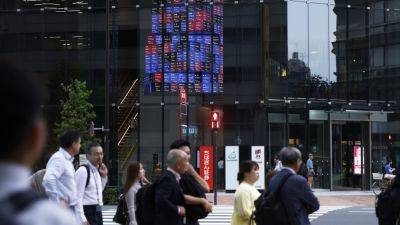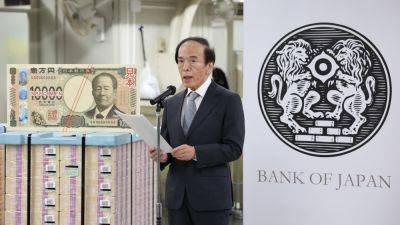Japan's stock markets keep testing new highs. Is the rally sustainable?
Japanese stocks have been on a stellar run in 2024.
In February, the country's benchmark Nikkei 225 smashed through its 1989 high.
This week, the Nikkei and the broad-based Topix surpassed previous records to hit fresh all-time closing highs on Thursday. The Topix notably breached a 34-year record set in December 1989.
How did the markets reach these level, especially for the Nikkei, which has scaled new peaks for the second time this year?
Earnings are the single driver to the current market rally, Jesper Koll, expert director at Tokyo-based financial services company Monex Group, told CNBC.
"Corporate Japan is now benefitting from decades of operational restructuring," Koll said, adding that "breakeven points are at world record lows, so even minimal increases in top-line revenues feed explosive profit growth."
He predicted earnings growth of 35% over the next two financial years — from April 2024 to March 2026 — as well as topline growth of 4% per year.
His forecasts stem from a prediction that Japanese companies will see domestic and global sales growth, and he explained that his prediction of a 4% sales growth is due to the wage hikes announced by Japan's largest union on Thursday.
Japan's largest union, commonly referred to as Rengo, announced that Japanese companies have delivered the largest wage hikes in 33 this year.
Monthly pay for union-backed workers will climb 5.1% on average this fiscal year ending March 2025. Rengo also said big firms with 300 or more union-backed employees raised wages by 5.19%, while smaller firms increased pay by 4.45%.
"You do not have a shunto [wage hike] of 5% and nominal sales rising less than 4%, for example," he points out.
More importantly, Koll said, Japan is a "bastion of stability." He







